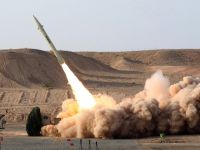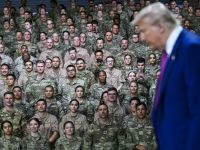The UN Relief and Works Agency is not out of the woods yet. That was the message Commissioner-General Pierre Krahenbuhl conveyed Wednesday to concerned Palestinians employed by the agency and shaken by the prospect of losing their jobs.
Krahenbuhl’s visit to Lebanon comes as the agency battles a crippling $100 million deficit that has compelled it to cut back on operations and threatened its valued core education program for Palestinians.
The financial shortfall threatened to delay the start of the agency’s school program.
Though the sum of $78 million was accumulated to keep education and food assistance programs going, the future for UNRWA is still uncertain, and Krahenbuhl says internal reorganization and more donor money are needed to keep its operations running next year.
UNRWA also employs nearly 30,000 people; the majority are Palestinians in Lebanon who have little chance of gaining employment elsewhere due to the absence of labor rights in the country.
The deficit also risked putting the future of thousands of Palestinian teachers and administrators at risk. While the agency was still imploring donors to amass funds to continue on with the school year, Krahenbuhl said he was faced with a choice.
“When you have a $100 million deficit and you have the risk of not being able to pay employees, the only [choice] I had would have been to dismiss staff,” he said, fielding questions from school administrators and journalists during a news conference at the Al-Jarmaq School in Taalabaya.
To protect teachers’ contracts, Krahenbuhl opted to place them on exceptional leave until funds permitted opening schools. “If there had not been any money from donors I would have been forced to terminate contracts. ... I put people on leave to protect staff contracts.”
However, the hard-hitting measure was not implemented as UNRWA managed through “hard work” to come up with the money required to subsidize another school year. But the close call has instilled a sense of uncertainty among many Palestinians of what the future might bring.
In a bid to ease concerns, Krahenbuhl said the agency worked very hard to ensure all teachers would get their salaries. He said a suggestion had been made to pay teachers half their wages to cut costs. “I can tell you the world could get used to that, but I wasn’t prepared to.”
“The result is we got the money we needed to guarantee employment for staff and guarantee education for children, and I think that’s a huge result we can all be proud of.”
But, he said, more needs to be done to ensure UNRWA does not find itself questioning how to scale back its education program again.
“For too long UNRWA has lived with a financial crisis,” Krahenbuhl said. “Now we have to take serious steps inside UNRWA to reduce some of the costs that are unnecessary, then go back to donors and tell them we need more stable funding. This is our focus, because we never again want to be in a situation where our education program is at risk.”
The top UNRWA official also met with Prime Minister Tammam Salam Tuesday, as well as other representatives from the international community in Lebanon.
By Samya Kullab








